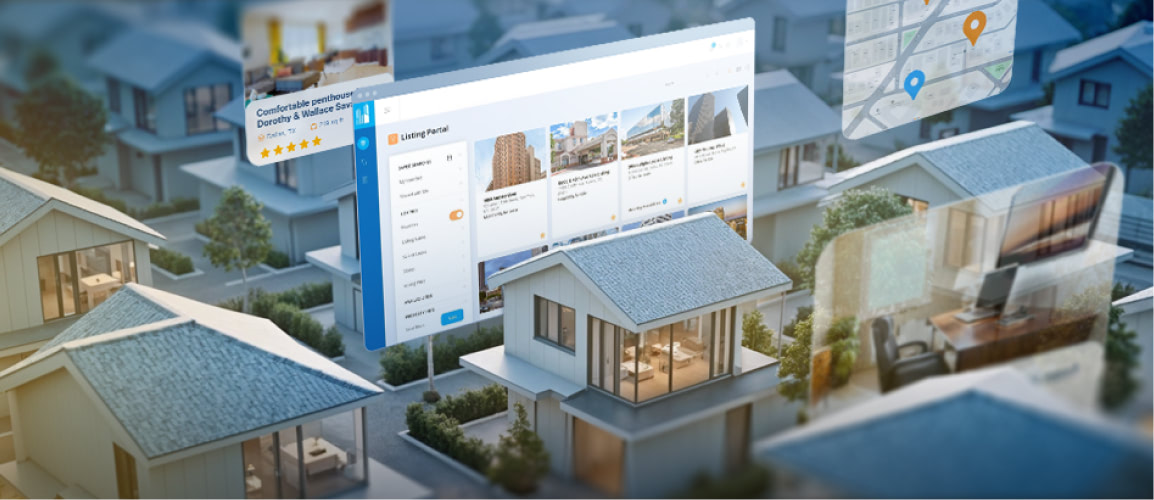Real estate development shapes the world around us, turning empty lots into thriving communities, sleek skyscrapers, or cozy neighborhoods. But what exactly does a real estate developer do? This article unpacks the role, responsibilities, and realities of real estate development, offering a clear, engaging, and comprehensive look at this dynamic profession. Whether you’re curious about the industry, aspiring to become a developer, or just want to understand the process behind those shiny new buildings, you’re in the right place.
The Role of a Real Estate Developer: The Big Picture
A real estate developer is the mastermind behind transforming raw land or existing properties into functional, profitable spaces. Think of them as the conductor of a symphony, orchestrating architects, contractors, financiers, and city officials to bring a vision to life. From residential homes to commercial complexes, their work defines how we live, work, and play.
Why Developers Matter
Developers don’t just build structures; they create environments that influence communities for decades. A well-planned project can boost local economies, provide housing, or revitalize neglected areas. But a poorly executed one? It can lead to financial losses or community backlash. Their decisions ripple outward, impacting everything from traffic patterns to school districts.
A Day in the Life
No two days are the same for a developer. One day, they’re scouting potential sites; the next, they’re negotiating with investors or navigating zoning laws. It’s a high-stakes, fast-paced role that blends creativity with hardcore business acumen. My cousin, a small-scale developer in Austin, once spent a week convincing a skeptical neighborhood association that his townhome project wouldn’t ruin their vibe—only to pivot to crunching numbers with his accountant the next day.
Core Responsibilities of a Real Estate Developer
Developers wear many hats, juggling tasks that require both vision and precision. Here’s a breakdown of their key responsibilities:
- Site Selection and Acquisition: Developers identify promising locations, assess their potential, and negotiate purchases or leases.
- Feasibility Studies: They analyze market trends, costs, and risks to ensure a project is viable.
- Financing: Securing funds through loans, investors, or partnerships is a core part of the job.
- Design and Planning: Collaborating with architects and engineers to create blueprints that meet market needs and regulations.
- Permitting and Approvals: Navigating the maze of local government regulations to get projects approved.
- Construction Oversight: Managing contractors to ensure projects stay on time and within budget.
- Marketing and Sales/Leasing: Promoting the finished property to buyers or tenants.
The Importance of Vision
Every project starts with a spark—an idea of what could be. A developer I met at a conference once shared how he turned a dilapidated warehouse into a trendy coworking space. His vision wasn’t just about profit; it was about creating a hub for local entrepreneurs. That’s the kind of forward-thinking that sets great developers apart.
Types of Real Estate Developers
Not all developers are the same. They specialize based on project type, scale, or focus. Here’s a quick comparison:
| Type | Focus | Examples |
|---|---|---|
| Residential | Homes, apartments, condos | Suburban subdivisions, high-rise condos |
| Commercial | Offices, retail, industrial spaces | Shopping malls, office towers |
| Mixed-Use | Blends residential, commercial, retail | Urban developments with shops and apartments |
| Industrial | Warehouses, logistics centers | Distribution hubs, factories |
| Land Development | Preparing raw land for sale or use | Subdivided lots, infrastructure |
Residential vs. Commercial Developers
Residential developers focus on housing, from single-family homes to sprawling apartment complexes. Commercial developers, on the other hand, deal with office buildings, retail centers, or hotels. Residential projects often face more emotional scrutiny from communities (nobody wants a high-rise blocking their sunset view), while commercial projects grapple with economic shifts, like the rise of remote work reducing office space demand.
The Real Estate Development Process: Step by Step
The development process is a complex journey, often taking years from concept to completion. Here’s how it unfolds:
Step 1: Market Research and Site Selection
Developers study market trends to find high-demand areas. They evaluate factors like population growth, job markets, and infrastructure. A bad choice here can doom a project—imagine building luxury condos in a declining industrial town.
Step 2: Feasibility Analysis
This involves crunching numbers to assess costs, potential revenue, and risks. Developers use tools like pro forma spreadsheets to project returns. A friend who dabbled in development once lost sleep over a feasibility study that showed his dream project was $2 million over budget.
Step 3: Financing the Project
Securing funds is a hurdle. Developers pitch to banks, private investors, or crowdfunding platforms. They often use a mix of debt and equity financing to spread risk. Smaller developers might even tap personal savings or family loans.
Step 4: Design and Planning
Collaborating with architects, developers create designs that balance aesthetics, functionality, and cost. This stage involves endless revisions—think of it like trying to agree on a restaurant with a picky group of friends.
Step 5: Permits and Approvals
Zoning laws, environmental regulations, and community input can make or break a project. Developers spend hours in city hall meetings, sometimes facing angry residents waving pitchforks (metaphorically, of course).
Step 6: Construction
Once permits are secured, construction begins. Developers oversee contractors, manage budgets, and handle inevitable surprises—like discovering an underground stream mid-build.
Step 7: Marketing and Sales
Finished projects need buyers or tenants. Developers work with real estate agents or marketing firms to showcase properties. A slick website or virtual tour can make all the difference.
Tools and Resources for Real Estate Developers
To succeed, developers rely on a toolbox of resources. Here are some of the best:
- Market Analysis Tools: CoStar, Zillow, or Redfin for market trends and property data.
- Project Management Software: Procore or Buildertrend for tracking progress and budgets.
- Financial Modeling Tools: Excel or Argus for creating pro formas and cash flow projections.
- Networking Platforms: Urban Land Institute (ULI) or local real estate associations for connections.
Where to Get These Tools
Most tools are available online, with subscriptions ranging from free (basic Zillow data) to thousands annually (CoStar). For beginners, free resources like local MLS data or government zoning maps are a great start.
Pros and Cons of Being a Real Estate Developer
Like any career, real estate development has its highs and lows. Here’s a quick look:
Pros
- High Earning Potential: Successful projects can yield millions in profits.
- Creative Freedom: Developers shape communities and leave a lasting legacy.
- Dynamic Work: No two projects are identical, keeping things exciting.
Cons
- High Risk: Market crashes or bad decisions can lead to financial ruin.
- Stressful Timelines: Delays or budget overruns are common headaches.
- Regulatory Hurdles: Navigating permits and approvals can feel like running through molasses.
Challenges Developers Face
The road to a finished project is rarely smooth. Economic downturns, like the 2008 housing crash, can wipe out even seasoned developers. Community opposition is another hurdle—nobody forgets the time a small town rallied against a proposed strip mall, delaying it for years. And don’t forget Mother Nature: unexpected environmental issues, like soil contamination, can balloon costs.
A Personal Anecdote
I once chatted with a developer who nearly lost his shirt when a lender pulled out mid-project. He scrambled to find new financing, even pitching to a skeptical uncle at a family barbecue. His persistence paid off, but it was a stark reminder of the high-wire act developers perform.
People Also Ask (PAA) Section
Here are real questions from Google’s “People Also Ask” feature, answered concisely:
What skills do you need to be a real estate developer?
You need financial acumen, project management skills, negotiation prowess, and a knack for market analysis. Communication and problem-solving are also critical for handling stakeholders and unexpected challenges.
How do real estate developers make money?
Developers earn profits by selling completed properties or leasing them for steady income. They also benefit from property appreciation or tax incentives, depending on the project.
Is real estate development a good career?
It’s rewarding but risky. The potential for high earnings and creative impact is huge, but it demands resilience, capital, and the ability to handle stress.
How do you become a real estate developer?
Start with education (business, finance, or real estate degrees help), gain experience through internships or smaller projects, and build a network. Many developers begin as real estate agents or contractors.
FAQ Section
How much money do real estate developers make?
Earnings vary widely. Small-scale developers might net $50,000–$200,000 per project, while large developers can earn millions. Profit margins depend on market conditions and project scale.
Do you need a degree to be a real estate developer?
No degree is required, but degrees in business, finance, or urban planning help. Experience and networking often matter more than formal education.
What’s the difference between a developer and a builder?
A developer oversees the entire project, from concept to financing to marketing. A builder focuses solely on construction, following the developer’s plans.
How risky is real estate development?
It’s high-risk, high-reward. Market fluctuations, regulatory delays, or construction issues can lead to losses, but successful projects can be wildly profitable.
Where can I learn more about real estate development?
Check out resources like the Urban Land Institute (ULI), Coursera courses on real estate finance, or books like The Real Estate Game by William Poorvu.
Final Thoughts
Real estate developers are the unsung architects of our cities, turning dreams into concrete reality. It’s a career that demands grit, vision, and a stomach for risk, but the payoff—both financially and in community impact—can be immense. Whether you’re eyeing a career in development or just curious about the process, understanding their role sheds light on the buildings that shape our lives. Want to dive deeper? Check out Urban Land Institute for industry insights or explore local zoning laws to see what’s happening in your area.






